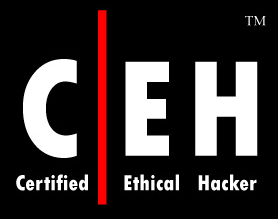I've Been Hacked | Cyber Security Specialists Gold Coast | 24/7
A New form of scam is emerging
The online world is growing on a daily basis. New commercial devices such as phones, watches, tablets, laptops, PC's & new smart automation devices are being added to our technical collection. Each of them having the opportunity to be exploited to your detriment.
Personally, we have seen a number of scams over the years come & go. Some are generated through malware or intentional hacks. But often, you don't have to even have a virus to be a victim. In a lot of cases, they are done through your emails. This is a tactic known as phishing. Essentially the objective of the hacker or scammer is to get you to interact with their false email to you which claims to be from a reputable company. Usually embedded is a link to a false website which may encourage you to put in your personal details or login credentials. Some have direct links to malware downloads. But to most, it is simply a basic email that usually presents a problem. It could be that you need to pay a bill, or you have a virus on your computer. Often, it can be really obvious that this is false & can be ignored. However, the latest tactic is one that could catch the best of us off guard.
More recently, with automated email marketing growing, you are seeing more promotional emails start to fill your inbox. Most of these you will find to be innocent. However, some just aren't quite right. Today, one of our team received one of the standard emails from major clothing retailer CottonOn encouraging you to review products that you have recently purchased. Funny enough, no purchases had been made anytime recently from this store. For most, this may send alarm bells & they may just avoid the email altogether. But in this case, the objective is a fear tactic. You are being told that you purchased things that you have never had anything to do with. Some may feel inclined to investigate this further, make sure their account hasn't been charged, etc. This may prompt you to call the conveniently placed phone number at the bottom of the email to get support.
This is where the real scam begins. In our case, we have chosen to avoid contact with these scammers. However, for those that may call the number will be wrapped up in a seemingly ordinary interaction with a sales support in which they will most likely recognise the sales as an error and they promise to refund you. Again, this all sounds good until they either request access to your personal information, card details or to remotely access your computer. It can go so many ways at this point that can lead to disastrous consequences.
The moral of the story, you NEED to be aware of all of the signs of a scam. The scambaiting is getting more and more innocent & professional looking, with less hacking being done & more social manipulation once you call their number. For us, the most obvious move is always to check the email address that it is coming from. In this case, with CottonOn being the suspected sender, we would expect the email address to be something along the lines of ...@cotton.com. If it is anything unrelated, misspelled it is almost guaranteed to be a phishing email.
For more tips or advice, or if you may have been a victim of a similar scam, get in touch with us today. We can help educate you and build up your defences against these terrible people to make sure your livelihood & sanity is protected.


















